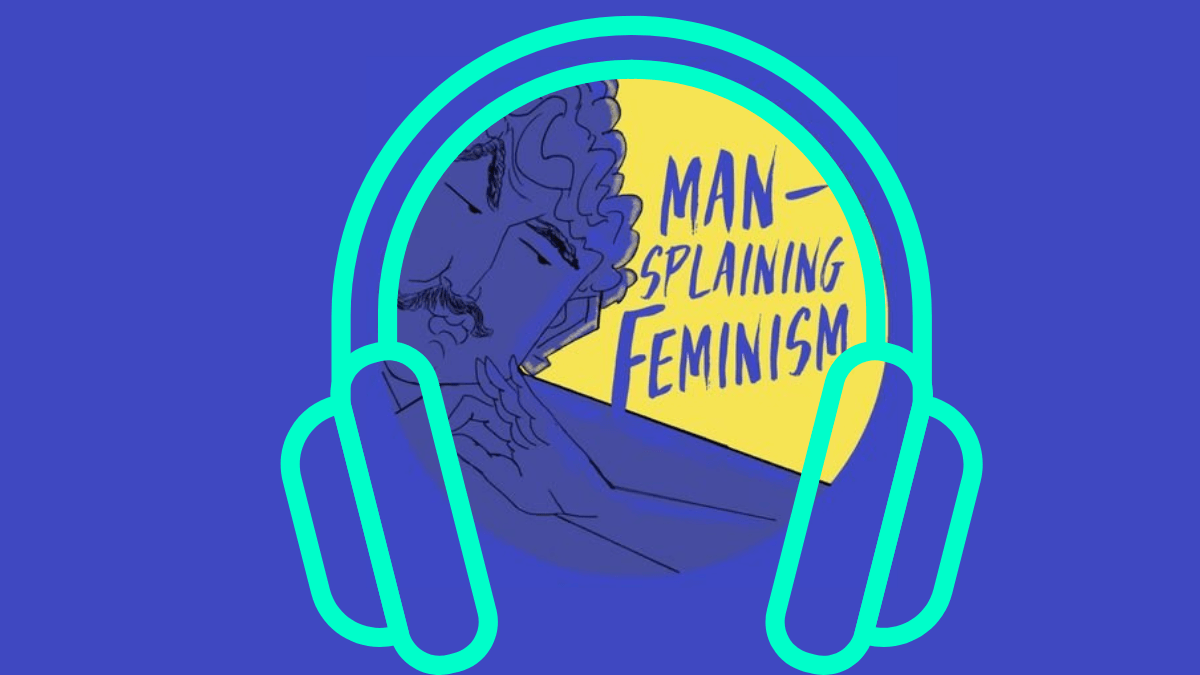Me and my friend Billy decided to talk about feminism, one feminist text at a time, recording them and releasing it as a podcast. We named it Mansplaining Feminism, and what started as an intellectual curiosity is now something that has changed both of our outlooks.
It is a sad reality that few men engage with feminist literature outside of university courses and even then, it is often towards the end of the course as a marginal discussion. In a previous life, I taught on a postgraduate International Security course at the University of London, and remember Gender shoe-horned in at the end of the course.
To most people, regardless of the awesome paradigm shifts that may be taking place during that short engagement with feminist thought, it is seen as something of an intellectual puzzle more than serious thought and is often sidelined once you’re onto “serious matters”.
Also read: Mansplaining 101: Why Do Men Explain Things To Women?
I was lucky though, as my own PhD supervisor, Dr. Laleh Khalili, was a feminist and the lecturer who headed the International Security course I taught on was Dr. Rahul Rao, whose most recent publication is Out of Time: The Queer Politics of Postcoloniality is a study of postcolonial narratives around sexuality. For me therefore, feminist and queer theories were always something more important than a side dish to more ‘serious perspectives’. To me, feminist theory and queer theory, were not marginal but very central, at least while I was in academia.
It is a sad reality that few men engage with feminist literature outside of university courses and even then, it is often towards the end of the course as a marginal discussion.
When I left academia to become a school teacher, things changed and the day to day realities seemed more important than any thought of problematising gender norms. But then, one evening in July, this happened:
I sent Billy a list of books, but he didn’t read them, and I don’t blame him. Some of the more philosophically dense books on the list would make difficult reading for anyone. Instead we thought, why don’t we just have weekly conversations about feminist theory. Somehow, recording these conversations made it less strange, and Mansplaining Feminism was born.
The podcast title is obviously tongue-in-cheek. I have a better grasp of feminist theory than the average man out there, but I am by no means an expert – so to justify me explaining feminism we felt “mansplaining” worked. But there is an ironic humour behind a Gujarati man and an Iranian man going through every major feminist text they know and discussing it, trying to understand its impact and its framing of patriarchy, an irony that title of the podcast captures. The title has also meant many other men are more keen to listen, softened the blow perhaps of engaging with something so rarely discussed by men.
But there is an ironic humour behind a Gujarati man and an Iranian man going through every major feminist text they know and discussing it, trying to understand its impact and its framing of patriarchy, an irony that title of the podcast captures.
Of course, there are limitations to this method of exploration. Not being an expert, my selection of texts will not be exhaustive, and our language is simple, as I try to answer Billy’s direct questions aimed at clarifying at times highly complex ideas. But it has been a fascinating journey. Every week, I read one text and write notes before calling Billy and summarising it for him. He then asks me questions, the most dreaded one being “What does that mean?” To have to explain the theory at a basic level has meant I have had to understand the texts more deeply, and although our conversations are not particularly ‘academic’ perhaps, I have learned a lot more this time around than I did at university.
Now we are starting our second season, having done interviews with feminist icons such as Professor Marilyn Waring, one of the pioneers in feminist economics, and Professor Cynthia Enloe, a pioneer in feminist international relations. This season we are looking forward to interviews with Professors Gayatri Spivak and Vron Ware to further problematise what we have learned so far, and our listener base is growing.
Also read: Video: What Is Mansplaining?
I asked Billy to summarise what he has learned from the podcast so far. He wrote this:
At first, I wanted to learn about feminism because I thought it was simply about women getting the same rights as men in society, but on social media and public debates it seemed so much more than that. Concepts of gender fluidity, toxic masculinity and other debates seemed too heated and I just didn’t know what it all meant. As a historian, I wanted to understand it chronologically.
I loved learning about de Beauvoir’s concepts of transcendence and immanence, and then about Betty Friedan’s focus on the problem of the housewife. But then as we reached more radical feminists I realised two things: Firstly that feminists do not agree with each other. It’s a vast and open academic field with very different ideas. Secondly, we actually are not learning about women or the rights of women. The discussion is rarely about women in isolation, but rather about society and how to organise society to make it more fair and equitable. I asked you to explain feminism to me, because I wanted to understand what they were talking about, and I have realised that they are talking about me.
You can follow Mansplaining Feminism on WordPress and Twitter.
You can hear their Podcast on Apple, Spotify and Castbox.
Billy is an Art History Lecturer from London with a PhD in Art and Archeology. His parents are from India and he’s currently living in Germany with his wife.
Arash Chax Sedighi is a Secondary School teacher with a PhD in International Politics from the University of London. He currently works in Manchester.




